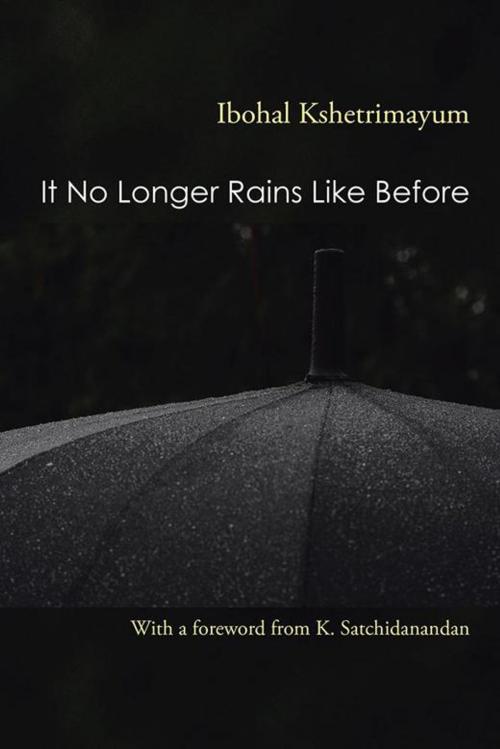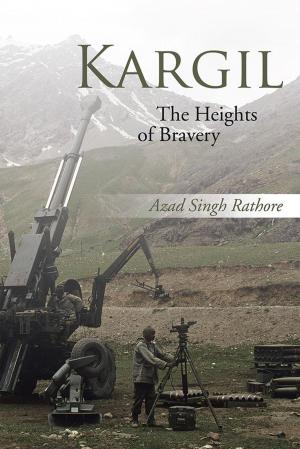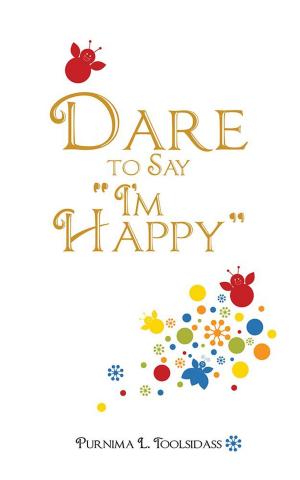It No Longer Rains Like Before
Nonfiction, Art & Architecture, General Art, Fiction & Literature, Poetry| Author: | Ibohal Kshetrimayum | ISBN: | 9781482836509 |
| Publisher: | Partridge Publishing India | Publication: | September 10, 2014 |
| Imprint: | Partridge Publishing India | Language: | English |
| Author: | Ibohal Kshetrimayum |
| ISBN: | 9781482836509 |
| Publisher: | Partridge Publishing India |
| Publication: | September 10, 2014 |
| Imprint: | Partridge Publishing India |
| Language: | English |
Ibohal Kshetrimayums poems do not lend themselves to the stereotypical clichs often deployed by the regular critics and anthologists in their discussions of the poetry of Northeast India. In fact, the stereotype is an illusion as much as the Northeast itself which is an amorphous, vaguely defined, construct of the mainstream imagination. Northeast India, as anyone who has been there or has even looked closely at its culture and literature will testify, is itself as diverse as India with its many languages, cultures and subcultures, belief systems, forms of worship, oral traditions and genres of written literature. Just as we need a comparative paradigm, and not a composite one, to understand the literatures of India, we will need a critical strategy that looks both at the shared and the specific aspects of the literature of the Northeast-which is no more than a convenient umbrella term, more geopolitical than aesthetic-to discuss its literary corpus. from the Foreword Born in Imphal, Manipur, Ibohal Kshetrimayum lives in Shillong, Meghalaya, and waits for poems to come to him. He never forces a poem out of himself. He believes in the passivity of a poet, who receives every poem as a gift from his muse. He neither claims ownership of his poems nor ascribes what is received to his virtues. He therefore, humbles himself to his daimonion, while justifying participation of past, present and future of his love, land, and life in his poetry. At the same time suffers trying to escape into a realm of pure poetry, while living amidst horrifying situations haunting his people-a reality he faces every moment of his life with the memory of what he has lost. He is now approaching the horizon thinking- This autumn Why getting older is like A bird into clouds -Matsuo Basho Cover Design: Leipaklei
Ibohal Kshetrimayums poems do not lend themselves to the stereotypical clichs often deployed by the regular critics and anthologists in their discussions of the poetry of Northeast India. In fact, the stereotype is an illusion as much as the Northeast itself which is an amorphous, vaguely defined, construct of the mainstream imagination. Northeast India, as anyone who has been there or has even looked closely at its culture and literature will testify, is itself as diverse as India with its many languages, cultures and subcultures, belief systems, forms of worship, oral traditions and genres of written literature. Just as we need a comparative paradigm, and not a composite one, to understand the literatures of India, we will need a critical strategy that looks both at the shared and the specific aspects of the literature of the Northeast-which is no more than a convenient umbrella term, more geopolitical than aesthetic-to discuss its literary corpus. from the Foreword Born in Imphal, Manipur, Ibohal Kshetrimayum lives in Shillong, Meghalaya, and waits for poems to come to him. He never forces a poem out of himself. He believes in the passivity of a poet, who receives every poem as a gift from his muse. He neither claims ownership of his poems nor ascribes what is received to his virtues. He therefore, humbles himself to his daimonion, while justifying participation of past, present and future of his love, land, and life in his poetry. At the same time suffers trying to escape into a realm of pure poetry, while living amidst horrifying situations haunting his people-a reality he faces every moment of his life with the memory of what he has lost. He is now approaching the horizon thinking- This autumn Why getting older is like A bird into clouds -Matsuo Basho Cover Design: Leipaklei















